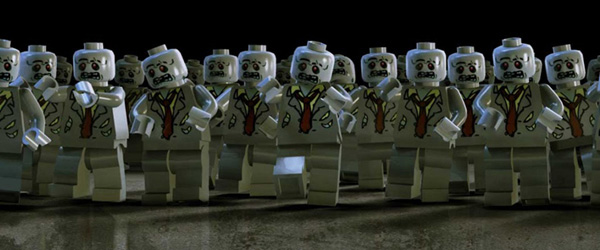
The river rushes fast. It’s not just sink or swim, it’s go with the flow. For authors these days, it seems like all the advice out there preaches success through conformity.
The strategy is simple: pick a popular genre and mimic the format of the bestsellers. This means copying the themes, situations, and character arcs from novels people read and applying a Mad Libs mentality to it. After all, there are no new stories. Every idea has already been told. An author’s greatest contribution is in the details, right?
There might be some truth to the decree, but do readers really want the same regurgitated plot lines over and over? For the record, I don’t think writing about zombies or vampires (or werewolves for that matter) is the problem. I just don’t think enough thought is put into giving these concepts an original slant.
Take a Stand
My whole life I’ve wanted to buck the establishment. I don’t know why but a part of me always felt that pop has no soul. And in terms of carbon copy screenplays and Fifty Shades knock-offs, that’s hard to argue against. These aren’t heartfelt stories, they’re formulas designed to squeeze out whatever juice is left in the market.
Now, I’m not begrudging those that produce this content or those that consume it – all’s fair in capitalism – but there must be room for something different. It must be possible to swim upstream.
I’ve done my fair share of railing against common fiction tropes. Stop saving the world. See beyond good and evil. And werewolves, put on a damn shirt. You see, these things have been done before. To death. And I think stretching our creative muscles is healthy.
Points for Originality
So does this all mean you won’t find common tropes in my fiction? Hell no. For one, that would be a nearly impossible feat, but more importantly, this isn’t about grading on a scorecard – it’s about finding your own flourish. Sycamore Moon is a werewolf police procedural ripe with outlaws, an overworked detective, and a CDC cover-up. It’s a genre mash-up, and there’s much more to the story than the wolves (who often get upstaged by more mundane elements). Shade City, on the other hand, is about a cocky ghost-hunter in Los Angeles. Nothing new there, I admit. But instead of a kitchen-sink urban fantasy with vampires, demons, fairies, and a wizard council, I decided to make the story more focused. More understated. And, I hope, you’ll find my take on shades to be unique.
And that’s the crux of my message. To me, it’s not about being superior, it’s about being different. As a reader, that’s what I appreciate most. The pleasant surprise of a fresh idea. The craft to keep a sophisticated audience guessing.
That’s the goal of my fiction. Pop is dead. Genre is overrated. Stand out or stand down.

Leave a Reply